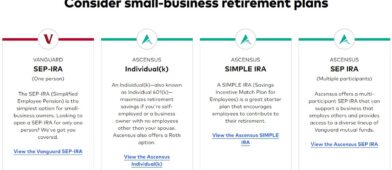What if I told you there was an investment with a government-mandated guaranteed rate of return?
You probably would say – “Thanks Jim, but I’m not a dummy and I know about certificates of deposit and they’re super boring.” (they’re also super safe!)
If you could read the title of this post, you probably already know the answer: tax liens (and they are secured by real estate).
I learned about these things many years ago and I even attended a tax lien auction. I didn’t buy anything, I just wanted to soak up the experience. Nearly ten years ago I attended a tax lien auction, also known as a tax sale, held on the steps of the Howard County Courthouse.
The auction only happens once a year here, in May or June, and the one I attended was really informal. I’m not sure what they’ll do with 2020 because the scheduled ones have been canceled already. I thought anything involving the government and the courts would have some kind of formality to it. It consisted of a guy, literally, standing on the steps holding a clipboard and shouting out liens, taking bids, and scribbling down records.
The people milling about were similarly informal. They knew what they wanted, waited to hear the lien number, and made their bids. Some people were on phones, others were there with their own clipboards, and it felt like everyone knew each other. It was like Storage Wars but with people’s homes.
I left thinking this was a good way to invest but probably not for me… but I learned a ton.
Table of Contents
What is Tax Lien Investing?
State and local governments need their taxes and when they aren’t paid, they have to recover it some other way. Property taxes are a primary revenue stream for most local governments. If an owner fails to pay the property tax bill, the local county or city puts a lien on the property and auctions that lien to investors through a tax lien auction.
It can vary, but most local tax departments auction off a tax lien after two to five years of unpaid taxes. The exact period depends on state laws.
Some local governments sell tax lien certificates where investors can pay the delinquent tax amount. The government gets their money, and the investor can collect interest as the property owner repays their delinquent taxes.
The property owner may have up to one year to repay the lien. Once they repay the lien, you exit the investment and they fully own the property again.
If the owner falls behind, you will need to foreclose and take full possession of the property. Then, you’ll need to sell the house or turn it into a rental property to earn investment income. In reality, this rarely happens, most investors get paid the interest rate mandated by the municipality.
Tax Lien vs. Tax Deed
The tax auction you’re attending may be selling tax liens and tax deeds. While these two terms sound alike, tax deeds require you to buy the entire property upfront.
Buying foreclosure homes during the 2008 Great Recession to rehab and flip for a profit is one example of tax deed investing. Not every investor has the time or capital to invest in tax deeds.
Tax liens only require you to invest in the delinquent taxes. Only having to invest a few thousand dollars and not repairing a foreclosed home is more feasible for most.
According to the National Tax Lien Association, approximately 30 states let cities and counties auction tax liens.
Tax liens are similar to a bank loan for a car loan or home mortgage in that it’s a debt obligation. The owner cannot sell or refinance the property until the lien releases. In this instance, they pay you the lien amount plus interest.
How You Can Make Money Investing in Tax Liens
There are two ways to make money by investing in tax liens:
- Collect simple interest payments from the property owner
- Foreclose on the property and either sell it or rent it
Each state has a different interest rate ceiling for tax liens. You can expect to earn between 5% and 18% interest on the lien amount in most states. Howard County sets an interest rate of 18%. The real (actual) interest rate you can collect depends on how competitive the tax auction is because everyone is bidding on the lien.
Most auctions award to the investor bidding the lowest interest rate. The auction starts at the maximum interest rate and reduces with each new bid. For example, the opening interest rate can be 18%, but the winning rate may only be 5%.
In theory, the less-risky properties will have a lower interest rate and riskier properties will be closer to the higher interest rate.
Most tax lien investments don’t require you to foreclose on the property, but it’s a possibility. You should primarily focus on your potential return on investment.
Investing in Tax Liens: Step-by-Step
Tax lien investing requires a LOT of research for two reasons. First, you would rather the owner pay back the loan, and you earn your interest rate. Second, if they don’t, you want to make sure you can sell or rent out the property if you have to foreclose.
The best starting place can be your local real estate market. You will need to know information like the location of high-quality neighborhoods and school districts. Owners of high-quality properties can also be more likely to repay their tax bill.
Each city and county have different procedures for buying tax liens, collecting interest payments and initiating foreclosure. While you will need to learn the intricacies of your investment market, the investing process is similar. Study this because you don’t want to learn on the fly.
Ask for a Delinquent Tax List
Delinquent tax lists are available from most city and county tax collector or treasurer offices. These lists can tell you which properties are up for auction.
Depending on how modern the department is, you might be able to receive the list by email. More antiquated departments have you retrieve a listing in person.
You should research the tax list for these details:
- Property street address
- Amount of taxes owed
- Number of years of delinquent taxes
These three factors help you create a candidate list of potential properties.
To avoid the competition, you can try contacting the property owner to see if they are interested in selling. This tactic can help you avoid a bidding war if you ultimately want to purchase the tax deed.
You might be able to keep your costs down if an undeveloped parcel has unpaid taxes — think farmland.
Developed properties tend to have higher property values and can require extensive repairs if you end up foreclosing.
Research Potential Properties
After finding out which properties are up for auction, make your candidate list of potential properties within your buying range.
Drive by the properties to see what your first impression is. If you like the property and the surrounding area, consider placing a bid.
Before the auction, calculate your lowest interest rate bid. Not every bidding war is worth winning if your cash can earn a higher return somewhere else.
Attend an Auction
Some auctions require you to attend in-person to bid. Many places are now going to online auctions letting long-distance investors enter the action.
Either auction method can be competitive. You should know your bid limits beforehand to avoid overbidding.
The winning bidder pays these costs upfront to buy the tax lien:
- Unpaid taxes
- Penalties
- Accrued interest
These are the taxes and fees that the property owner owes the government. So, this is the minimum selling price.
Collect Payment
Most states require you to send notice to the property owner that you own their tax lien. The property owner will pay you monthly during the redemption period.
Most redemption periods are at least one year but can be longer.
If the owner fails to repay the lien within the legal redemption period, you can initiate the foreclosure process. There are specific procedures and timelines you must follow to properly foreclose. Make sure you review the laws if your tax lien turns into a tax sale.
Who Should Invest?
Tax liens can be a consistent way to earn short-term income without having all your money in the stock market. Accredited investorswith real estate investing experience may also be a good fit.
Potential returns are between 12% and 18% depending on the state’s interest rate cap. How much you can earn depends on which state you invest in and how low you bid.
In regards to time and required capital, tax lien investing falls somewhere between buying a real estate index fund (or crowdfund real estate) and flipping houses.
Who Shouldn’t Invest in Tax Liens?
Tax lien investing isn’t for those wanting a hands-off simple investing approach. You will need to spend hours screening potential properties, attending an auction, and potentially foreclosing on the property.
Tax liens are not the place to park any cash you need in three years. However, tax liens can be an exciting way to diversify your portfolio if you can stomach the risk of having the capital for a medium-term investment horizon.
Potential Risks of Tax Lien Investing
This investing idea isn’t risk-free as the property owner must still pay the overdue taxes. Instead of paying them to the government, you’re on the hook instead. While tax lien investing can be less risky than timing the stock market or trading penny stocks, you need to perform your due diligence.
Here are some of the risks you may run into that reduce your potential income.
Low Interest Rates
A bidding war means you may not earn a desirable interest rate. Tax lien investing requires a lot of effort. Your potential return on investment can be similar to other investment ideas that require less effort.
You Pay Additional Taxes and Fees
Owning the tax lien means you can be liable for future unpaid taxes and penalties if the owner doesn’t pay. You may even have to pay city-imposed fines for incidents like not mowing the lawn.
Property Owner Declares Bankruptcy
A judge can legally reduce the interest rate for your tax lien if the property owner declares bankruptcy. Think of this risk as being a yield cut to your favorite dividend stock.
Tax Liens Will Expire
The tax liens you win at auction can expire after the redemption period ends. If you don’t take follow-up action after the period ends, you can lose your opportunity to recoup your original investment.
Make sure you become familiar with the local foreclosure rules. You will need to start the foreclosure process by a certain deadline. You will also need to send notifications to the owner about the missed payments. Improperly following a procedure can derail your efforts.
The Property is Worthless
Selling a foreclosure isn’t a guaranteed way to make money. The property may not be easy to sell if the structure hasn’t been maintained or is in a bad neighborhood.
Plus, you don’t know what damage the property owner will do when moving out.
You might be able to inspect the outside of a property before the tax sale auction, but you may not be able to look inside the house until after you foreclose on the property. It can be a multi-year gap from winning the bid until you step inside the home. A lot can change in that time.
Avoid neighborhoods with high foreclosure rates or depreciating property values. Avoiding these risks reduces the chance of buying an “underwater property” that has less market value than your investment costs.
Tax lien investing can be a good investment, but it can require a lot of work. That’s one of the reasons why I didn’t end up doing it.
Another thing is that I really don’t like the idea of foreclosing on someone and kicking them out of their home. I realize that this happens rarely but I wouldn’t want to do it even once. There are other, less emotionally fraught, ways to earn a living.




What other methods would you suggest for investing in real estate? What should a beginner start with, houses, or rental properties?
Personally, I’ve just been sticking to crowdfunding sites. I think I’m just not good enough at it (and not willing to invest the time needed) to buy individual properties.
I would also check out this book – How to Invest in Real Estate: The Ultimate Beginner’s Guide to Getting Started by Brandon Turner and Josh Dorkin.